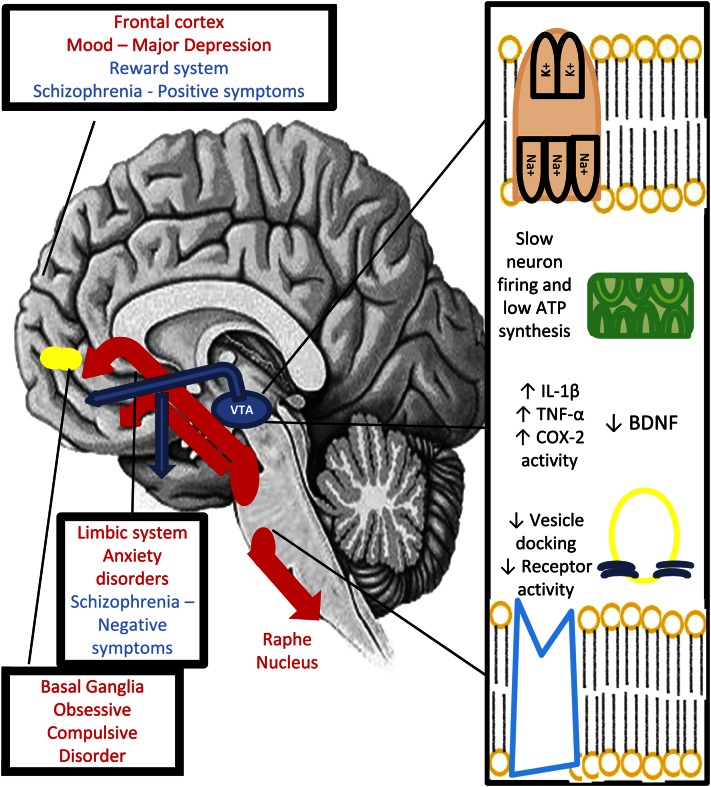Figure 1.
Neuron activity and affected neural pathways in a low (n-3) fatty acid concentration environment. The molecular role of (n-3) fatty acids vary in the neuron. They are responsible for maintaining membrane stability and the conformity and function of proteins, whether they be ion receptors, the complex Na+/K+ ATPase, or vesicle-docking peptides necessary for neurotransmission. They have also anti-inflammatory properties, lowering the concentration of proinflammatory cytokines, which may provoke neuron damage and death. (N-3) fatty acids are also necessary for the synthesis of brain-derived neurotrophic factor, a substance involved in the process of neurogenesis and synaptic plasticity. In lacking these components, the neurological pathways malfunction and may contribute to the start of certain psychiatric diseases. There are recorded experiences using (n-3) fatty acids in many psychiatric conditions in the literature, ranging from major depression to borderline personality disorder, each with a particular theoretical justification and generally positive outcomes when compared with the control/placebo group.

